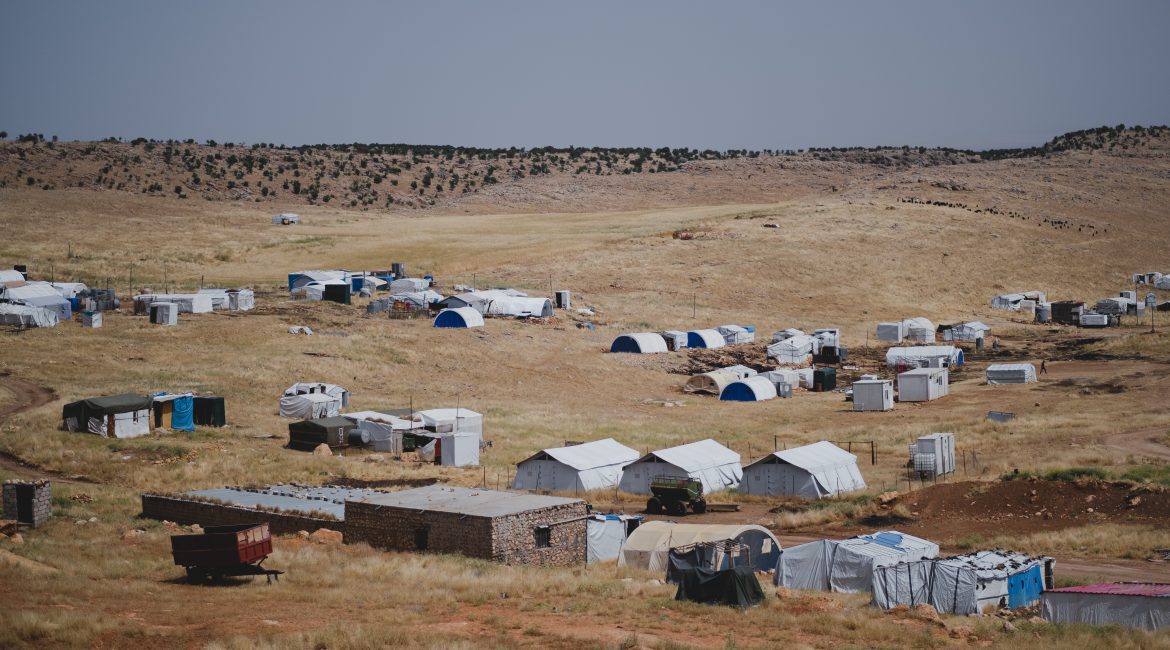There is no dispute about the importance of the Syrian refugee issue, which naturally occupies wide concerns at the Syrian, regional and international levels. Parties at different levels express their interest in their positions and opinions on the issue, and most of them do not miss the opportunity to talk about the Syrian issue, without referring to the issue of refugees and their return to Syria.
The importance of the issue is derived, first of all, from data and details related to it, perhaps the most prominent of which is that it relates to about 13 million people, who constitute more than half of the population of Syria, distributed in dozens of countries of the world.
The second factor is that the Syrians continue to seek refuge and spread throughout the world. And as the facts prove, all the conditions and restrictions imposed on the movement of Syrians do not prevent them from fleeing to protective environments and to countries that are less dangerous than the Syrian reality. According to many estimates, the opening of Syria's borders with neighboring countries will prompt most of the rest of its population to leave.
The third factor, represented by the time extension of the asylum process that has been going on for 13 years and does not show a close practical end. Rather, the length of the path creates factors that prevent more categories of refugees from not returning to their country later, in light of the changes that have taken place and are still taking place around them, and what is related to them and their country.
The fourth factor is the fact that a number of countries of asylum, due to different circumstances, have turned the refugee issue into a card in local politics, and a factor in the struggle of political groups, and in some cases structural crises have been used, as factors of influence and exploitation in the refugee issue.
There are other factors that can be referred to in the context of what makes the refugee issue the concern of many parties around the world, which push each of its countries or a group of them to address the issue from the angle of political interests and needs.
Amid the division of the parties between advocates and supporters of the return of the refugees, each of the parties presents justifications for its position. The main aim of these allegations is to cover up the positions of some countries to serve political goals, not originally related to the issue of the return of refugees.
The first and most important allegation is that, at present, conditions are safe in Syria. This is a common claim in a number of European countries, even the United Nations has repeatedly denied it. But, the facts of daily life in the Syrian regions, where arrests, kidnappings, bombings, killings, and death under torture in detention centers continue, contradict it.
The slogan of safe and voluntary return is the second worst allegation about refugee returns. The basis for its badness is presented by the two largest refugee camps, the first in Turkey, which has about 3.5 million Syrians, and the second in Lebanon, which has more than a million Syrians, while Lebanese authorities raise the number to more than two million Syrians.
The official authorities in Turkey and Lebanon adopted this slogan under pressure from local political groups linked to the regime in Syria. The authorities in both countries pushed the security and military agencies to carry out forced deportations that have escalated in recent years. The Lebanese army and security apparatus handed over tens of thousands of refugees to Syria. The Turkish security deported hundreds of thousands of Syrians, after forcing them to sign an agreement to deport them to northwestern Syria, which is run by parties collaborating with Turkey.
In contrast to the above, Russia has worked in the past years to claim that the return of refugees to Syria will constitute an important beginning stage in settling the Syrian issue, and it encouraged, through its relations with the neighboring countries of Syria, the deportation of its residents, which encouraged these countries to deport Syrians for any reason.
The common denominator in the allegations related to the return of refugees is the evasion of the concerned countries from their political and humanitarian responsibilities and obligations, amid efforts to create “justifications” for their policy, and to hold the victims responsible for the results of the policies of those who brought them to the refugee disaster, instead of seeking a solution that stops the continuation of the tragedy, a solution that returns the refugees to their country, their homes, and their possessions.

